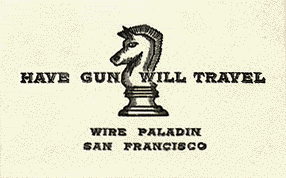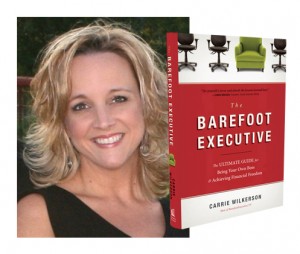Podcast: Play in new window | Download (Duration: 36:45 — 34.1MB)
Subscribe: Apple Podcasts | Spotify | | More
 A blog post is written by an A-list blogger with tens of thousands of daily readers. Quite often the comment ice will be broken by a reader whose feedback is nothing more than fan adoration. Fandom is a form of positive feedback, but how helpful is it to the blogger. Can the blogger gain any benefit? Does it serve as a barometer of the quality of that particular post? Will the blogger adjust her content based on the comments?
A blog post is written by an A-list blogger with tens of thousands of daily readers. Quite often the comment ice will be broken by a reader whose feedback is nothing more than fan adoration. Fandom is a form of positive feedback, but how helpful is it to the blogger. Can the blogger gain any benefit? Does it serve as a barometer of the quality of that particular post? Will the blogger adjust her content based on the comments?
Maybe. Maybe not. And because there’s no definitive answer, it may not be productive feedback. Circumstances, situations and context will determine. Don Norman, the cognitive science expert and author of The Design Of Everyday Things is right though. We need specifics, details and feedback that will help us concentrate on what’s necessary so we can fix things. Too many times all we get is praise or criticism like a form with check boxes. Excellent doesn’t tell us very much. Poor tells us even less.
A rock band produces a record that veers considerably from their previous style. They want to venture out beyond their past. They want to push things and embrace adventure in their music. Their fans may embrace it, but more likely than not, fans will hate it. It will be something different than what fans expected. Fans will vote with their dollars. Sales will give the band fast feedback, but artistic creativity can help a band avoid burnout and boredom, even if the fans are displeased. Sometimes fans embrace the monumental change in direction. For example, Pearl Jam’s leader, Eddie Vedder, released “Ukelele Songs” as a solo project before this last Pearl Jam project, Lightning Bolt. Eddie got lots of feedback about that solo project.
Dave_911: I thought it was gonna grow on me…epic fail.
Greg C: Makes me feel like I’m on a cloud.
What’s Eddie supposed to do with such disparate feedback? Probably not much of anything. Eddie created this record because he wanted to. For decades he’s experienced success with Pearl Jam. He’s not likely got anything to prove to anybody any more, other than himself. Success – financially and musically – afford him the opportunity to take big risks.
As for Pearl Jam’s latest, those reviews are all over the board, too. As I hit the record button there are about 2,700 iTunes reviews of Lightning Bolt. The overall rating is 4 stars.
DaveG73: Kids…This is ROCK…Any questions?
Luke 79: Do NOT listen to Mind Your Manners (a song on the record) on your mobile device. It will explode.
Yield101: …this is just hard to listen to.
Hitop8: Unfortunately just another example of PJ trying to make a song that sounds like another band.
mdmarkle: The destruction is complete. You guys finally sound like your 50 years old.
Josh Kelley isn’t Eddie Vedder or Pearl Jam. He’s released a number of pop albums, but in March of 2011 he released a country record, Georgia Clay. I’m a fan of both Vedder and Kelley. I own all of Kelley’s earlier records, but I didn’t buy Georgia Clay. My refusal to buy that record is a form of feedback, but it’s anonymous – secretive (until now) even! I enjoy some country music, but I’m not enough of a country music fan to suffer through what I suspect would be my disappointment with Josh Kelley. I love his music and listen to it regularly. For me, pop music is the context for Josh Kelley (at least in my life), not country music.
Most of the iTunes feedback for Georgia Clay is quite positive. Based on the comments, it would seem many of the negative comments are from fans like me – those who appreciated Kelley in the context of pop music. But there’s a lot of positive comments. It’s very possible Josh Kelley has found a new audience among country music fans. The feedback of sales will likely determine his musical future. If sales of Georgia Clay eclipse his past pop records, then he can join Hootie (Darius Rucker) in the ranks of country music. When you’re not yet a household name, the feedback of these sales is more likely to determine the course you take. We’ll see what Josh decides, but so far it appears he’s all in on country music. In fact, his website doesn’t even show his earlier work. I’m hoping for a return to his pop music, but my feedback isn’t enough to set his course, nor should it be.
What about YOU? What feedback determines your direction?
Whether it’s a blog, a podcast, a business, a career or life in general – we’re constantly taking in feedback to determine what adjustments need to be made. Sometimes we solicit feedback from people we trust, friends and family. Of course, there are inherent risks with that. Like the blogger’s biggest fans, they can and often do tell us what we want to hear. They extol upon us their praise, adoration and expressions of confidence. Or, perhaps worse, they shred us to pieces by being our harshest, even unfair, critics. Simply because they lack objectivity. They remain one component of feedback, but rarely do we base all our decisions solely on what they tell us. We need more feedback.
Where do we look? Who do we listen to? What barometers do we use?
Feedback demands a variety of components. Context, ambitions, goals, objectives, schedules, resources, opportunities, relationships and much more. I refer to all these things as circumstance. Each of us has a unique circumstance that determines how feedback – positive or negative – affects us. Our desired destination determines our course, and the kind of feedback that serves us best.
Eddie Vedder’s feedback will likely have less of an impact on his direction because of his current condition – both musically and financially. Eddie’s going to go in the direction he wants, likely without regard to feedback. It’s the power of being fully independent. He’s flying in the rarified air of super heros.
Josh Kelley’s feedback could have a greater impact on his direction. However, we don’t know why he’s headed in his current direction. Does he love country music? Does he prefer writing and performing country songs? If so, then he may not need overwhelming positive feedback. If he gets sufficient sales to fuel his desire, he’ll likely push forward in his current direction. But, if he’s trying to morph his talents into the country genre because he or “his people” think he’s got improved opportunities there, then the level of feedback (sales) required will likely be higher. It all depends on the factors unique to his circumstance. It depends on where he wants to go.
Wealthy executives sometimes walk away from lucrative careers in pursuit of something far simpler and more sparse financially. As high paid executives they were getting positive feedback telling them they were on course. For some reason, they grow weary with it though and like Eddie Vedder, they need a change. A decision is made contrary to the positive feedback – and it’s usually made for reasons that are quite personal.
On the other hand, a young person graduates with an MBA seeking an opportunity to ascend to the executive suite. Resumes are built, Linkedin profiles updated and social media engaged. Without any solid job leads, he may decide to seek the advice of a career consultant, somebody who can help him gain momentum. After resume tweaks and additional strategies are employed, he may find himself getting regular interviews. It’s a good sign that he’s headed in the right direction.
Now, he’s finding little success beyond the first interview. He tries to find out where he’s failing. More feedback from a professional reveals he’s likely too self-focused and coming on too strong. He makes changes and begins to get second, even third interviews until he finally lands a great job.
The process involved frustration, time and ongoing adjustments. But how was that any different than the high paid guy who walked away from the executive suite. Both people had lives that centered around the executive suite. One wanted away, the other wanted in. Feedback played a pivotal role for both, but the feedback was very different because of the desired course sought by each one.
So the question is, “Where do you want to go?”
Feedback is like mile markers on the highway. It tells us if we’re getting closer or further away from our desired destination. It’s important to know where we want to go. Feedback often muddies up that water. We dig deep inside and come to terms with what we want, or what we think we want. Then, people start talking to us, questioning us and sometimes they influence us to alter our direction.
Sometimes it’s for the best. Sometimes not.
In the end, internal and external feedback influences us. Sometimes greatly. Sometimes not. Most of the time we end up doing exactly what we want, likely earning what we deserve.
It’s Business. Feedback Counts.
In our businesses, feedback is best measured in the form of revenue generated or sales made. If nobody is buying, adjust. Maybe you have to adjust the offer. Or the price. Or both. Maybe you have to adjust your marketing message. Or your value proposition.
If you’re not making sales – or you’re failing to make enough sales – then you’ve got nothing to lose by changing things up.
Try something different. Measure how well or how poorly it works. Do more of what works. Do less of what doesn’t.
Do you follow the crowd? That is, do you follow the majority? Maybe. Maybe not. You have to decide.
All I know is you’ve got to have revenues to make a go of it. Without revenues – without sufficient revenues – you won’t last. It’s not selling out to sell out. It may be confirmation that you’re at long last giving people what they most want. Keep giving them more of it…only better.






 Rae Hoffman is
Rae Hoffman is  Carrie Wilkerson is
Carrie Wilkerson is 

 A blog post is written by an A-list blogger with tens of thousands of daily readers. Quite often the comment ice will be broken by a reader whose feedback is nothing more than fan adoration. Fandom is a form of positive feedback, but how helpful is it to the blogger. Can the blogger gain any benefit? Does it serve as a barometer of the quality of that particular post? Will the blogger adjust her content based on the comments?
A blog post is written by an A-list blogger with tens of thousands of daily readers. Quite often the comment ice will be broken by a reader whose feedback is nothing more than fan adoration. Fandom is a form of positive feedback, but how helpful is it to the blogger. Can the blogger gain any benefit? Does it serve as a barometer of the quality of that particular post? Will the blogger adjust her content based on the comments?